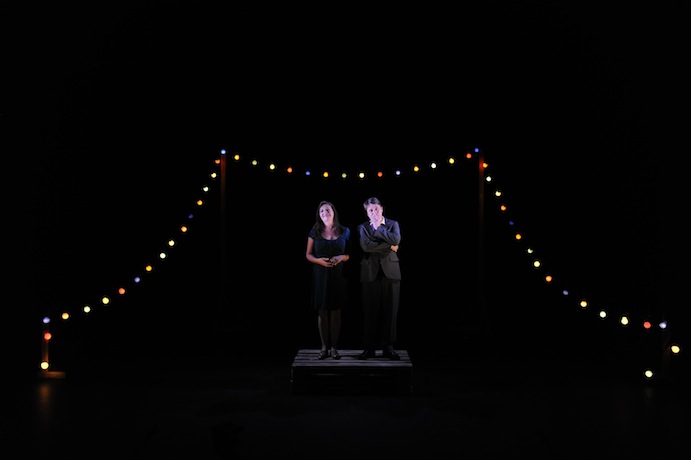Suggested Donation
This is an extract from an interview with Tim Etchells, Artistic Director of Forced Entertainment – read the full interview here.
Two things. I think we are always very strong on this idea that you have to end in the language that you begin in, or the language that you’re working in. If you’ve got a question in the work, you answer the question in the language that you’ve been dealing with. So often you see endings that arrive from somewhere else in the form of a text or a song or a dance or a thing that hasn’t been earned. We’re obsessed with this idea that you have to answer your question in the terms you’ve already established. A big speech from the author at the end of a dance piece isn’t a satisfying solution. You’d need to dance the answer to your question.
The other big thing is that endings mustn’t close anything at all. I’m returning to this idea of ending with a problem rather than a neatly tied package.
Finally, I think about the ending as a way of negotiating your way back to the present time with the audience. We tend to start quite close to the audience, in the sense of making a certain kind of contact and a certain kind of present relationship with them – the simple starting place that I spoke about already. Then there’s often a sense of the performance journeying away from that closeness – getting thicker and moving deeper into something. Then in the last chunk of time, towards the end of the piece we row back to the place where we can see each other and feel each other across the divide between the stage and the auditorium. Tomorrow’s Parties is a show with two performers on stage making speculations about what the future will be like. There’s a feeling in that piece that you depart into quite a cerebral, imaginative world of the future but a couple of times, and especially at the end, we come back down to the idea: What will people in the future say about now? How will people speak about this time? So at the end there’s an attempt to return to the present time and space of the theatre, to audience and performers, to here and to us.

